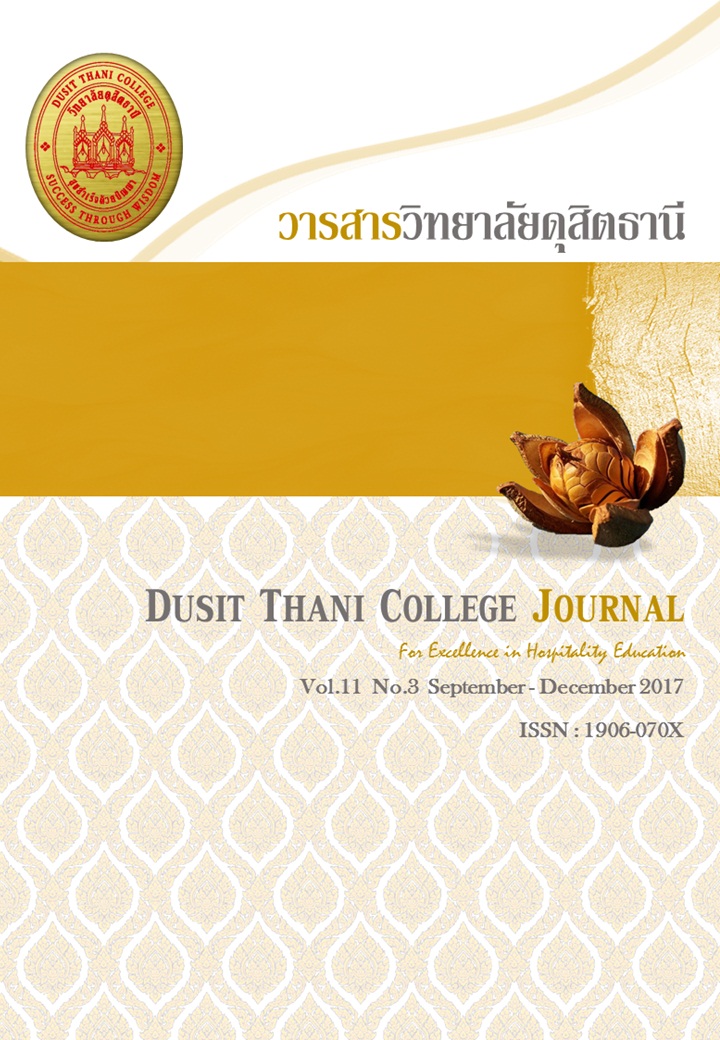A Structural Model of the Elder Career Skill Development
Main Article Content
Abstract
In 2030, Thailand will lead into an extremely elderly society, so knowledge development is important. The purpose of this article is to synthesize the causal factors of the elder career skill development. The methods are content analysis from theories and literatures as well as a focus group discussion with the 6 elderly people (trainees, trainers, and training administrators) for conduct causal model of the elder career skill development.
The result shows that causal model of the elder career skill development has 5 components. 1) The individual characteristic includes perceived ability, benefit, and attitude. 2) The training design includes, training, trainer and content requirement. 3) The training environment includes technology, group, and fund support. 4) The individual motivation includes relationship, self-esteem, and increase income. 5) The career development includes training satisfaction, skills, and knowledge for career. This model leads to policy recommendation, conceptual framework for empirical study (Structural Equation Modeling: SEM), and increased knowledge in vocational science and the elderly career development in the future.
Article Details
Article Screening Policy
- All research and academic articles to be published must be considered and screened by three peer reviews in the relevant field / article.
- All articles, texts, illustrations and tables published in the journal are the personal opinions of the authors. Editors don't always have to agree. And no responsibility whatsoever is the sole responsibility of the author.
- The articles to be published must never be published. Where did you first publish? And not in the consideration of other journals If the audit found that there has been a duplicate publication It is the sole responsibility of the author.
- Any article that the reader sees as being plagiarized or impersonated without reference. Or mislead the work of the author Please let the journal editor know it will be your greatest blessing.
References
Bandura, A. (1994). A social cognitive theory of personality. Handbook of Personality: Theory and Research. New York: Guilford Publication.
Caffarella and Rosemry, S. (1994). Planning Programs for Adult Learners. San Francisco: Jossey-Bass Publisher.
Harter, Stephen P. (1986). Online Information Retrieval : Concepts, Principles, and Techniques. Orlando : Academic Press.
Holton III, E.F. and Baldwin, T.T. (2003). Improving Learning Transfer in Organization San Francisco: Jossey-Bass.
Knowles and Malcolm, S. (1970). The Modern Practice of Adult Education. New York: Association Press.
Lewin, K. (1943). Defining the Field at a Given Time. Psychological Review.
Washington D.C: American Psychological Association.
Ministry of Labour.(2007). Situation of The Elder Worker. Bangkok: Kurusapa Printing.
National Statistical Office. (2013). The Estimation of Thai population: 2010 - 2040.
Noe, R. .A. (1986). Trainee attributes and attitudes: Neglected influences on training
effectiveness. Academy of Management Review 7: 433-441.
Nopkun, Aunta. (2003). The Idea Framework of The Participation Program Development for
Non-Formal Education. Bangkok: Chaunpim Printing Limited Partnership.
Office of The National Economics and Social Development Board. The Estimation of Thai population. https://www.oppo.opp.go.th/info/StatP_290457.pdf, April 2 2015, 2012.
Roger, C. R. (1919). Freedom to Learn. Columbus: Charles E. Merril,.
Samuel H. O. (1995). Theories of Career Development. United State of America:
Silmon & Schuster Company.
The Prime Minister’s Office. (2005). The Strategy of The Thai Social Preparation lead to The Elder Society, Bangkok: Bangkok Block.


